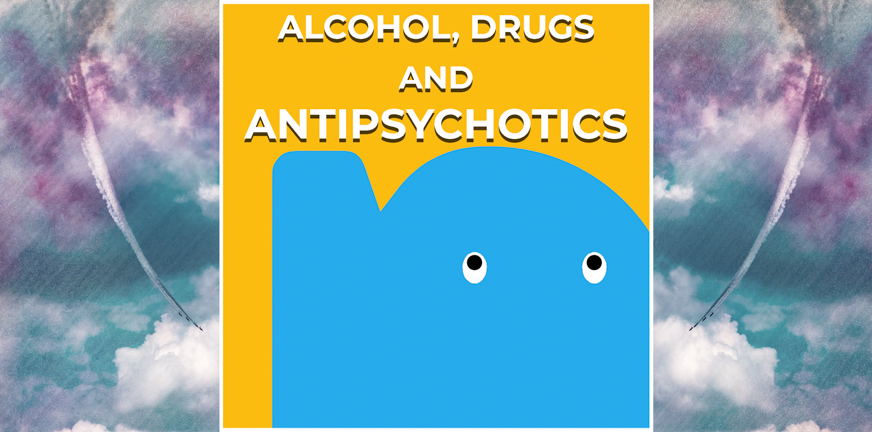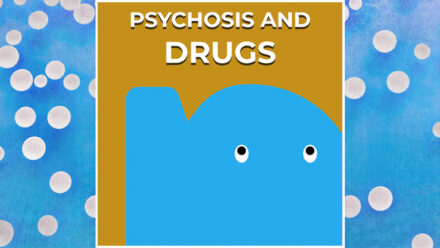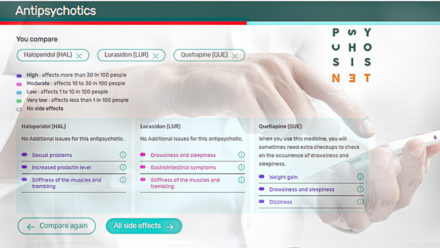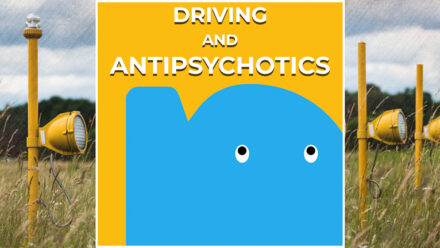
Drugs and alcohol can influence the effect and side effects of antipsychotics. And the other way round: antipychotics can change how you respond to alcohol and drugs. The combination can make you extra sleepy, for example, or strengthen the effect of alcohol.
What about using drugs or alcohol in combination with antipsychotics?
Do you drink regularly? Then tell your therapist. When you drink alcohol, your body takes a little longer to break down certain chemicals within the antipsychotics. This can make you feel very tired and sleepy. Also know that alcohol hits you at least twice as hard when you are on antipsychotics.
When you drink (very) much, or when your body breaks down alcohol relatively slowly, the combination with antipsychotics can be harmful. In the worst case, it can even put you in a coma. So: if you do drink, drink in moderation!
Always read your medicine’s leaflet for more information on the combination of alcohol and your particular antipsychotic.
Illegal drugs can make the side effects of some medicines worse, and decrease or instead strengthen the effect of many medication. So be very cautious about doing drugs when you are on antipsychotics.
External websites:
- Medline Plus Information about specific medicines and patient leaflet
- Mind.org on info about driving and medication




